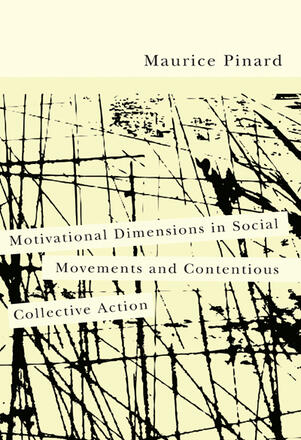
Motivational Dimensions in Social Movements and Contentious Collective Action
Description
After exposing the limitations of these conflicting perspectives, Maurice Pinard elaborates on an entirely new synthesis, one that involves several motivational components. The pushing force of felt grievances, now with qualifications, is brought back but accompanied, or at times replaced, by other forces, such as feelings of moral obligation or simple aspirations. With regard to pulling factors, collective goods or goals pursued can be involved or replaced by individual material or social rewards granted to participants. Expectancy of success, a generally neglected component, also enters the picture. Finally, the effect of emotions and collective identities are among additional factors that must be considered. By developing theoretical distinctions that have important empirical implications and enriching and sharpening our understanding of the motivational factors for collective action, Pinard offers a major contribution destined to become an essential new starting point for any future writers addressing these issues.
Reviews
"In a balanced, even wise manner, Pinard reviews, synthesizes, and extends a great deal of research on what motivates individuals to join movements and to continue or discontinue their participation. This short, tight book clears up confusions and offers
"This is a major contribution to the literature on social movements in that it makes necessary theoretical distinctions with important empirical implications, while enriching and sharpening our understanding of motivational issues. It is of major relevance for scholars in history, political science, sociology, and social psychology who have an interest in understanding social movements, and will serve as a key starting point for future writers who address this topic." William Gamson, Boston College